- Home
- Nora Roberts
Blue Smoke
Blue Smoke Read online
PROLOGUE
Fire became in heat and smoke and light. Like some preternatural beast clawing its way from the womb, it burst to life with a cackle that rose to a roar.
And changed everything in one magnificent instant.
Like that beast, it slithered, snaked its way over wood, and scored what had been clean and bright with its black and powerful fingers.
It had eyes, red and all seeing, and a mind so brilliant, so complete, it memorized everything in its orbit.
He saw it as a kind of entity, a gilded, crimson god that existed only to destroy. And it took what it wanted without remorse, without mercy. With such ardor.
Everything fell before it, kneeling supplicants that worshipped even as they were consumed.
But he had made it, created it. So he was the god of fire. More powerful than the flames, more canny than the heat, more stunning than the smoke.
It hadn’t lived until he gave it breath.
Watching it become, he fell in love.
The light flickered over his face, danced in his fascinated eyes. He took a beer, savored its sharp coolness in his throat as his skin streamed with the heat.
There was excitement in his belly, wonder in his mind. Possibilities flashing through his imagination as the fire streaked up the walls.
It was beautiful. It was strong. It was fun.
Watching it become, he became. And his destiny was scored into him, branding heart and soul.
1
BALTIMORE, 1985
Catarina Hale’s childhood ended on a steamy August night a few hours after the Orioles demolished the Rangers at Memorial Stadium, kicking their Texas butts—as her dad said—nine to one. Her parents had taken a rare night off to haul the whole family to the game, which made the win all the sweeter. Most nights one of them, often both, put in long hours at Sirico’s, the pizzeria they’d taken over from her mother’s father. And the place where, eighteen years before, her parents had met. Her mother, a young, vibrant eighteen—so the story went—when the twenty-year-old Gibson Hale had swaggered in for a slice.
Went in for pizza, he liked to say, and got myself an Italian goddess.
Her father talked weird that way, a lot. But Reena liked to hear it.
Got himself a pizzeria, too, ten years later when Poppi and Nuni decided it was time to put their traveling shoes on. Bianca, the youngest of five and their only daughter, took it over with her Gib as none of her brothers wanted the place.
Sirico’s had stood in the same spot in Baltimore’s Little Italy for over forty-three years. Which was even older than Reena’s father, a fact that amazed her. Now her father—who didn’t have even a single drop of Italian blood in his whole body—ran the place, along with her mother—who was Italian all the way through to the bone.
Sirico’s was almost always busy, and a lot of work, but Reena didn’t mind, even when she had to help. Her older sister, Isabella, complained because sometimes she had to work there on Saturday nights instead of going out on a date, or with her friends. But Bella complained almost all the time anyway.
She especially complained that their oldest sister, Francesca, had her own bedroom on the third floor while she had to share with Reena. Xander got his own room, too, because he was the only boy even though he was the youngest.
Sharing with Bella had been okay, it had even been fun until Bella got to be a teenager and decided she was too old to do anything but talk about boys or read fashion magazines or play with her hair.
Reena was eleven and five-sixths. The five-sixths was an essential addition because it meant she had only fourteen months until she was a teenager. This was currently her most fervent ambition, overtaking previous ambitions such as becoming a nun or marrying Tom Cruise.
On this hot and heavy August night when Reena was eleven and five-sixths, she awoke in the dark with hard, cramping pains in her belly. She curled up, trying to make herself into a ball and biting her lip to hold back a moan. Across the room, as far as could be managed now that Bella was fourteen and more interested in having big hair than in being a big sister, Bella snored gently.
Reena rubbed at the ache and thought of the hot dogs and popcorn and candy she’d gobbled up at the ball game. Her mother told her she’d be sorry.
Couldn’t her mother be wrong, even once?
She tried to offer it up, like the nuns were always saying, so some poor sinner could benefit from her bellyache. But it just hurt!
Maybe it wasn’t from the hot dogs. Maybe it was from when Joey Pastorelli hit her in the stomach. He’d gotten in bad trouble for it. For knocking her down and ripping her shirt and calling her a name she didn’t understand. Mr. Pastorelli and her father had gotten into a fight when her dad went to his house to “discuss the situation.”
She’d heard them yelling at each other. Her father never yelled—well, hardly ever yelled. Her mother was the yeller because she was one hundred percent Italian and had a temper.
But boy had he yelled at Mr. Pastorelli. And he’d hugged her so hard when he got home.
And they’d gone to the ball game.
Maybe she was being punished for being glad Joey Pastorelli was going to get punished. And being a little glad he’d knocked her down and torn her shirt because then they’d gone to the game and watched the O’s stomp all over the Rangers.
Or maybe she had internal injuries.
She knew you could get internal injuries and even die because she’d seen it on Emergency!, one of her and Xander’s favorite shows.
The thought brought on another vicious cramp that had her eyes welling with tears. She started to get out of bed—she wanted her mother—and felt something wet between her thighs.
Sniffling, embarrassed she might have wet her pants like a baby, she crept out of the bedroom, down the hall toward the bathroom. She stepped inside the room with its pink tub and tiles and pulled up her Ghostbusters T-shirt.
Hot waves of fear rolled through her as she stared at the blood on her thighs. She was dying. Her ears began to ring. When the next cramp seized her belly, she opened her mouth to scream.
And understood.
Not dying, she thought. Not suffering from internal injuries. She had her period. She was having her first period.
Her mother had explained it all, about the eggs, and cycles and about becoming a woman. Both her sisters had periods every month, and so did her mother.
There was Kotex in the cabinet under the sink. Mama had shown her how to use it, and she’d locked herself in one day to practice. She cleaned herself up and tried not to be a sissy about it. It wasn’t the blood that bothered her so much, but where it came from was pretty gross.
But she was grown-up now, grown-up enough to take care of what her mama told her was a natural thing, a female thing.
Because she was no longer sleepy, and she was now a woman, she decided to go down to the kitchen and have some ginger ale. It was so hot in the house—dog days, Dad called them. And she had so much to think about now that she’d become. She took her glass outside, to sit and sip and think on the white marble steps.
It was quiet enough that she heard the Pastorellis’ dog bark in that hard, coughing way he had. And the streetlights were glowing. It made her feel like she was the only one in the world who was awake. For right now, she was the only one in the world who knew what had happened inside her body.
She sipped her drink and thought about what it would be like going back to school next month. How many of the girls had gotten their period over the summer.
She would start to get breasts now. She looked down at her chest and wondered what that would be like. What it would feel like. You didn’t feel your hair grow, or your fingernails, but maybe you could feel breasts growing.
Weird, but interesting
.
If they’d start to grow now, she’d have them by the time she was finally a teenager.
She sat on the marble steps, a still flat-chested girl with a tender tummy. Her crop of honey-blond hair going frizzy in the humidity, her long-lidded tawny eyes getting heavy. There was a little mole just above the right corner of her top lip, and braces on her teeth.
On that sultry night the present seemed absolutely safe, the future a misty dream.
She yawned once, blinked sleepily. As she rose to go back in, her gaze swept down the street toward Sirico’s, where it had stood since even before her father was born. At first she thought the flickering light she saw in the big front window was some kind of reflection, and she thought, Pretty.
Her lips curved as she continued to study it, then her head cocked in puzzlement. It didn’t really look like a reflection, or like someone had forgotten to turn off all the lights at closing.
Curious, she stepped down to the sidewalk, the glass still in her hand.
Too intrigued to consider just how her mother would skin her for walking out alone in the middle of the night, even on her own block, Reena wandered down the sidewalk.
And her heart began to thud when what she saw began to filter through the dreamy sleepiness. Smoke poured out the front door, a door that wasn’t closed. The lights she saw were flames.
“Fire.” She whispered it first, then screamed it as she ran back to the house and flew through the front door.
She would never forget it, not for all of her life, standing with her family while Sirico’s burned. The roar of the fire as it stabbed through broken windows, shot up in quick gold towers, was a constant thrum in her ears. There were sirens screaming, whooshing gusts of water pumping out of the big hoses, weeping and shouting. But the sound of the fire, the voice of it, overpowered everything else.
She could feel it inside her belly, the fire, like the cramping. The wonder and horror, the awful beauty of it, pulsed there.
What was it like inside the fire, inside where the firemen went? Hot and dark? Thick and bright? Some of the flames looked like big tongues, lapping out, curling back like they could taste what they burned.
Smoke rolled, pluming out, rising. It stung her eyes, her nose, even as the whirling dance of flame dazzled her eyes. Her feet were still bare, and the asphalt felt like heated coals. But she couldn’t step away, couldn’t take her eyes off the spectacle, like some mad and ferocious circus.
Something exploded, and there were more screams in response. Firemen in helmets, faces blackened by the smoke and ash, moved like ghosts in the haze of smoke. Like soldiers, she thought. It sounded like a war movie.
And yet even the water sparkled as it flew through the air.
She wondered what was happening inside. What were the men doing? What was the fire doing? If it was a war, did it hide, then leap out to attack, bright and gold?
Ash floated down like dirty snow. Mesmerized, Reena stepped forward. Her mother caught her wrist, drawing her back, hooking an arm around her to bring Reena close against her.
“Stay here,” Bianca murmured. “We have to stay together.”
She just wanted to see. Her mother’s heart was an excited drumbeat against her ear. She started to turn her head, to look up, to ask if they could get closer. Just a little closer.
But it wasn’t excitement on her mother’s face. It wasn’t wonder that shone in her eyes, but tears.
She was beautiful; everyone said so. But now her face looked like it had been carved out of something very hard, leaving sharp lines dug deep. The tears and the smoke had reddened her eyes. There was gray ash in her hair.
Beside her, Dad stood with his hand on her shoulder. And to Reena’s horror, she saw there were tears in his eyes, too. She could see the fire reflected in the shine of them, as if it had somehow crept inside him.
It wasn’t a movie, it was real. Something of theirs, something that had been theirs all of her life, was burning away right in front of her. She could look beyond the hypnotic light and movement of the fire now, she could see the black smears on the walls of Sirico’s, the grime and wet soot staining the white marble steps, the jagged shards of glass.
Neighbors stood on the street, the sidewalk, most in their nightclothes. Some held children or babies. Some were crying.
She remembered all at once that Pete Tolino and his wife and baby lived in the little apartment above the shop. Something squeezed her heart when she looked up, saw the smoke pouring out of the upper windows.
“Daddy! Daddy! Pete and Theresa.”
“They’re all right.” He lifted her when she pulled away from her mother. Lifted her as he used to when she’d been little. And he pressed his face against her neck. “Everyone’s all right.”
She hid her face against his shoulder, in shame. She hadn’t thought of the people, she hadn’t even thought of all the things—the pictures and the stools, the tablecloths and the big ovens.
She’d only thought of the fire, its brilliance and its roar.
“I’m sorry.” She wept now, with her face buried against her father’s bare shoulder. “I’m sorry.”
“Ssh. We’ll fix it.” But his voice was raw, as if he’d drunk the smoke. “I can fix it.”
Comforted, she rested her head on his shoulder, scanned the faces and the fire. She saw her sisters holding each other, and her mother holding Xander.
Old Mr. Falco sat on his steps, his gnarled fingers working a rosary. Mrs. DiSalvo from next door came over to put an arm around her mother’s shoulders. With some relief she saw Pete now, sitting on the curb with his head in his hands, his wife huddled beside him clutching the baby.
Then she saw Joey. He stood, his thumbs hooked in his front pockets, his hip cocked as he stared at the fire. His face was full of something like joy, the kind in the faces of the martyrs on her holy cards.
A something that made Reena hold on tighter to her father.
Then Joey turned his head, looked at her. Grinned.
She whispered, “Daddy,” but a man with a microphone strode up and began asking questions.
She tried to cling when he set her down. Joey was still staring, still grinning, and it was more frightening than the fire. But her father nudged her toward her sisters.
“Fran, take your brother and sisters home now.”
“I want to stay with you.” Reena grabbed at his hands. “I have to stay with you.”
“You need to go home.” He crouched until his red-rimmed eyes were level with hers. “It’s almost out now. It’s almost done. I said I’d fix it, and I will.” He pressed a kiss to her forehead. “Go on home. We’ll be there soon.”
“Catarina.” Her mother drew her back. “Help your sisters make coffee, and some food. For the people who’re helping us. It’s what we can do.”
Food was always something they could do. Pots of coffee, pitchers of cold tea, thick sandwiches. For once there was no arguing in the kitchen between the sisters. Bella wept steadily throughout the process, but Fran didn’t slap at her for it. And when Xander said he’d carry one of the pitchers, no one told him he was too small.
There was a stink in the air now, one she would always remember, and the smoke hung like a dirty curtain. But they set up a folding table on the sidewalk for the coffee, the tea, the sandwiches. Passed out cups and bread to grimy hands.
Some of the neighbors had gone back home, out of the smoke and stink, out of the drifting ash that settled on cars and ground in a thin, dirty snow. There was no brilliant light now, and even from a distance Reena could see the blackened brick, the rivers of wet soot, the gaping holes that had been windows.
The pots of flowers she’d helped her mother plant in the spring to sit on the white steps lay broken, trampled, dead.
Her parents stood in the street outside Sirico’s, their hands locked, her father in the jeans he’d grabbed when she woke him, her mother in the bright red robe she’d gotten for her birthday only last month.
Even wh
en the big trucks drove away, they stood together.
One of the men in a fireman’s helmet walked over to speak to them, and they spoke for what seemed a long time. Then her parents turned away, still hand in hand, and walked toward home.

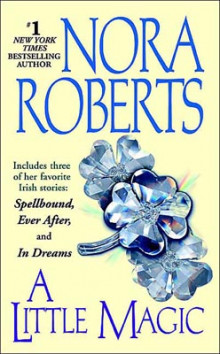 A Little Magic
A Little Magic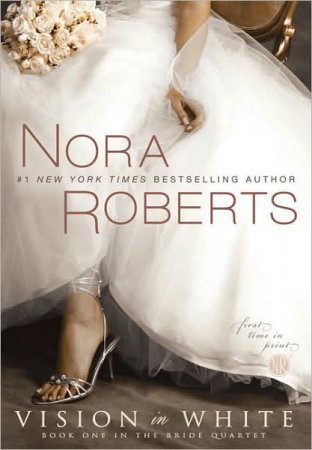 Vision in White
Vision in White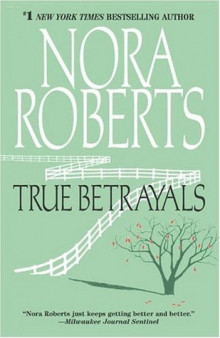 True Betrayals
True Betrayals The Next Always
The Next Always A Man for Amanda
A Man for Amanda Born in Fire
Born in Fire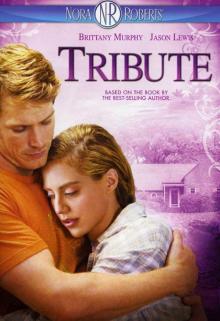 Tribute
Tribute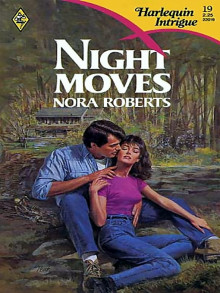 Night Moves
Night Moves Dance Upon the Air
Dance Upon the Air The Name of the Game
The Name of the Game Jewels of the Sun
Jewels of the Sun River's End
River's End Public Secrets
Public Secrets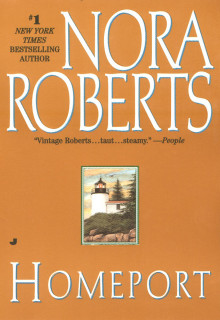 Homeport
Homeport Private Scandals
Private Scandals The Witness
The Witness Blithe Images
Blithe Images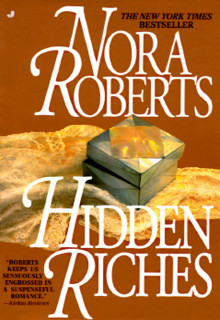 Hidden Riches
Hidden Riches Key of Light
Key of Light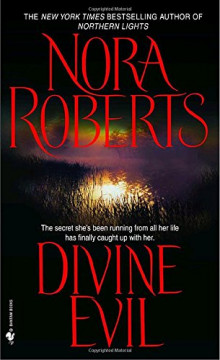 Divine Evil
Divine Evil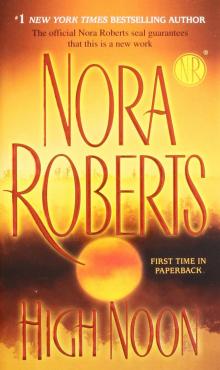 High Noon
High Noon Blue Dahlia
Blue Dahlia Sea Swept
Sea Swept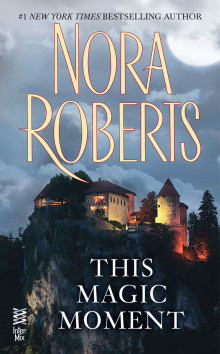 This Magic Moment
This Magic Moment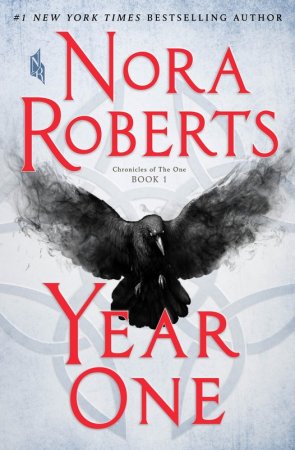 Year One
Year One A Little Fate
A Little Fate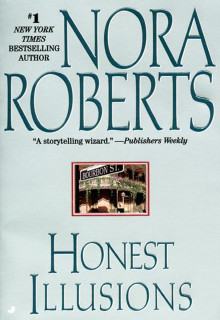 Honest Illusions
Honest Illusions The Reef
The Reef Shelter in Place
Shelter in Place The Hollow
The Hollow Holding the Dream
Holding the Dream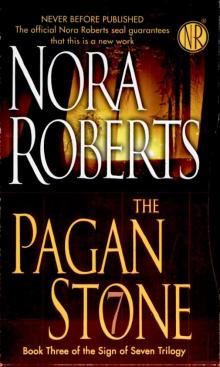 The Pagan Stone
The Pagan Stone Savour the Moment
Savour the Moment The Perfect Hope
The Perfect Hope Island of Glass
Island of Glass Happy Ever After
Happy Ever After Bed of Roses
Bed of Roses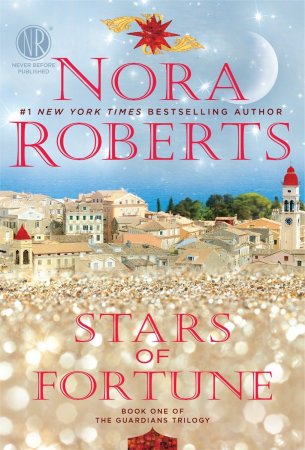 Stars of Fortune
Stars of Fortune Dark Witch
Dark Witch The Return of Rafe MacKade
The Return of Rafe MacKade Chesapeake Blue
Chesapeake Blue The Perfect Neighbor
The Perfect Neighbor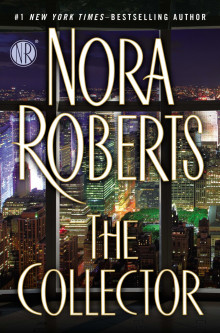 The Collector
The Collector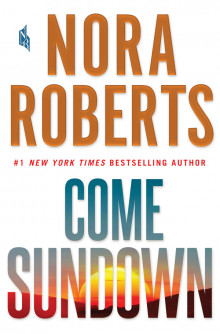 Come Sundown
Come Sundown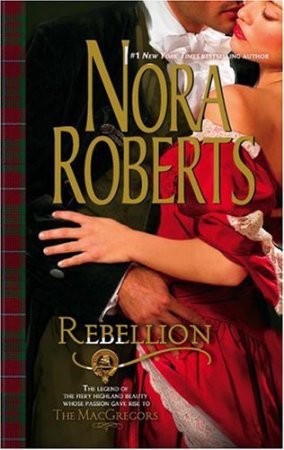 Rebellion
Rebellion Affaire Royale
Affaire Royale Daring to Dream
Daring to Dream Bay of Sighs
Bay of Sighs Blood Magick
Blood Magick Angels Fall
Angels Fall Captivated
Captivated The Last Boyfriend
The Last Boyfriend Irish Thoroughbred
Irish Thoroughbred Inner Harbor
Inner Harbor The Right Path
The Right Path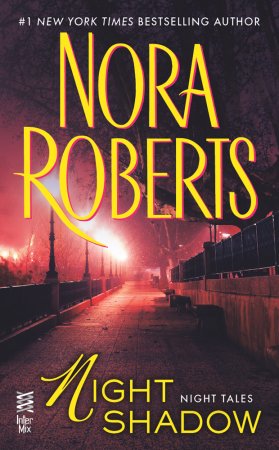 Night Shadow
Night Shadow The Heart of Devin MacKade
The Heart of Devin MacKade Shadow Spell
Shadow Spell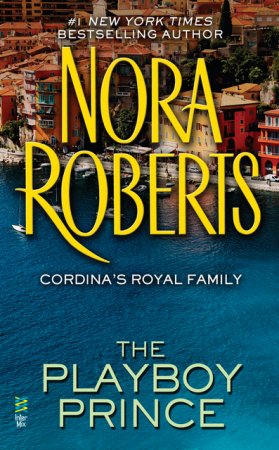 The Playboy Prince
The Playboy Prince The Fall of Shane MacKade
The Fall of Shane MacKade Rising Tides
Rising Tides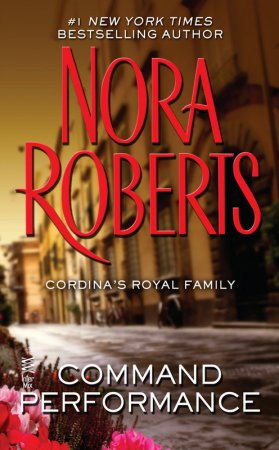 Command Performance
Command Performance Hidden Star
Hidden Star Cordina's Crown Jewel
Cordina's Crown Jewel The MacGregor Brides
The MacGregor Brides The Pride of Jared MacKade
The Pride of Jared MacKade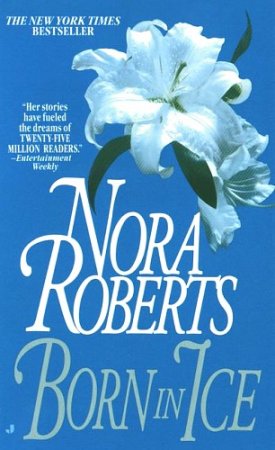 Born in Ice
Born in Ice Whiskey Beach
Whiskey Beach The Last Honest Woman
The Last Honest Woman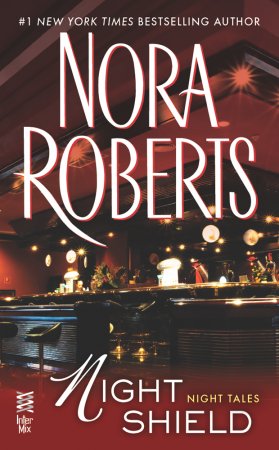 Night Shield
Night Shield Born in Shame
Born in Shame Secret Star
Secret Star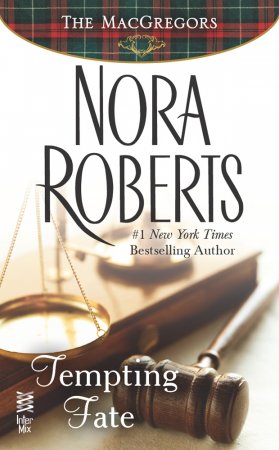 Tempting Fate
Tempting Fate Nightshade
Nightshade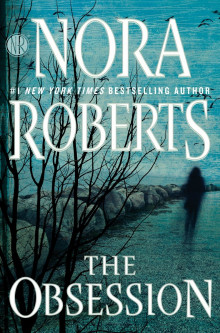 The Obsession
The Obsession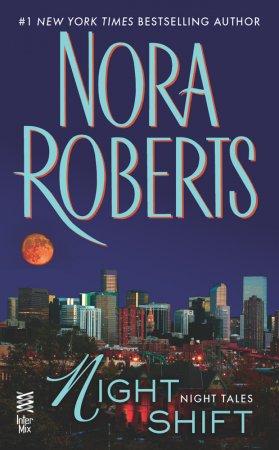 Night Shift
Night Shift Playing The Odds
Playing The Odds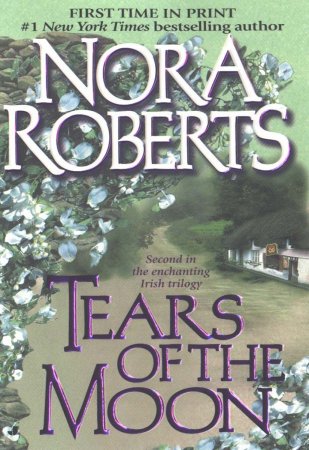 Tears of the Moon
Tears of the Moon One Man's Art
One Man's Art The MacGregor Groom
The MacGregor Groom Irish Rebel
Irish Rebel Morrigan's Cross
Morrigan's Cross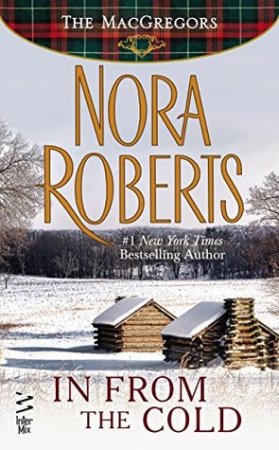 In From The Cold
In From The Cold Night Smoke
Night Smoke Finding the Dream
Finding the Dream Red Lily
Red Lily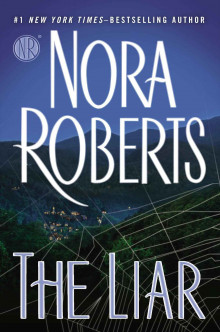 The Liar
The Liar Montana Sky
Montana Sky Heart of the Sea
Heart of the Sea All The Possibilities
All The Possibilities Opposites Attract
Opposites Attract Captive Star
Captive Star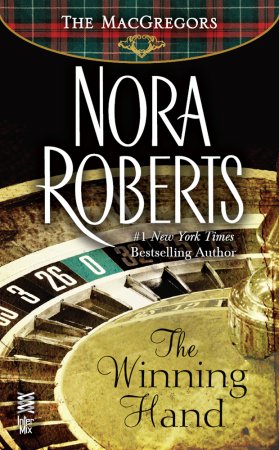 The Winning Hand
The Winning Hand Key of Valor
Key of Valor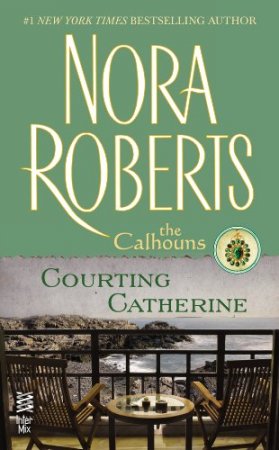 Courting Catherine
Courting Catherine Heaven and Earth
Heaven and Earth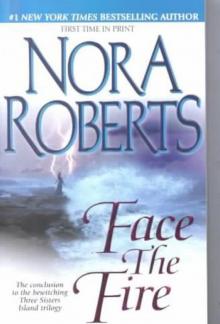 Face the Fire
Face the Fire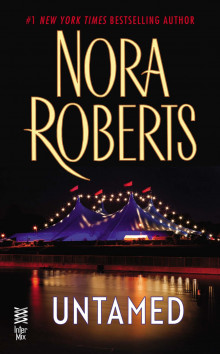 Untamed
Untamed Skin Deep
Skin Deep Enchanted
Enchanted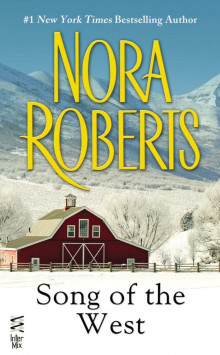 Song of the West
Song of the West Suzanna's Surrender
Suzanna's Surrender Entranced
Entranced Dance of the Gods
Dance of the Gods Key of Knowledge
Key of Knowledge Charmed
Charmed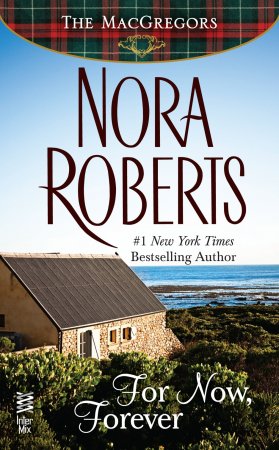 For Now, Forever
For Now, Forever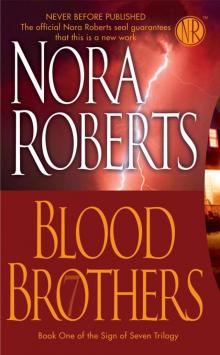 Blood Brothers
Blood Brothers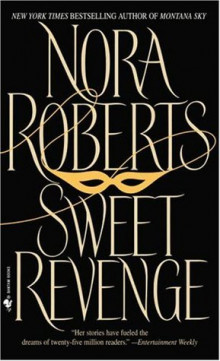 Sweet Revenge
Sweet Revenge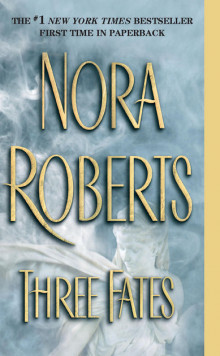 Three Fates
Three Fates Mind Over Matter
Mind Over Matter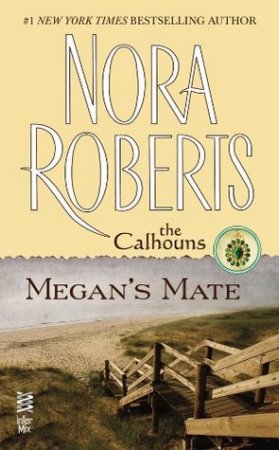 Megan's Mate
Megan's Mate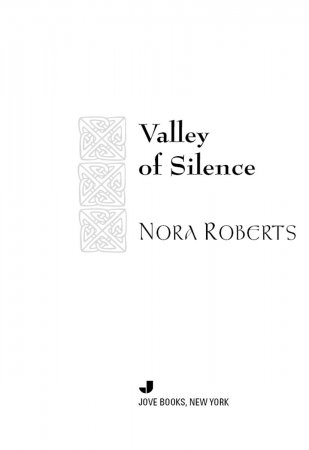 Valley of Silence
Valley of Silence Without A Trace
Without A Trace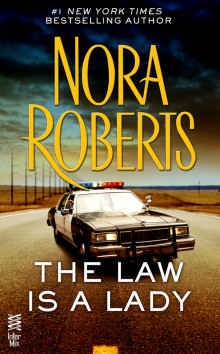 The Law is a Lady
The Law is a Lady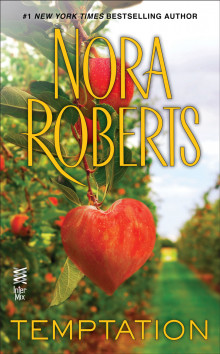 Temptation
Temptation Dance to the Piper
Dance to the Piper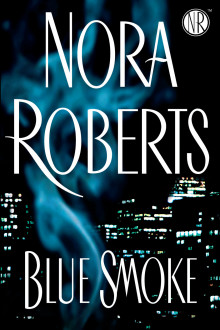 Blue Smoke
Blue Smoke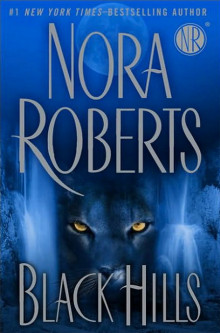 Black Hills
Black Hills The Heart's Victory
The Heart's Victory Sullivan's Woman
Sullivan's Woman Genuine Lies
Genuine Lies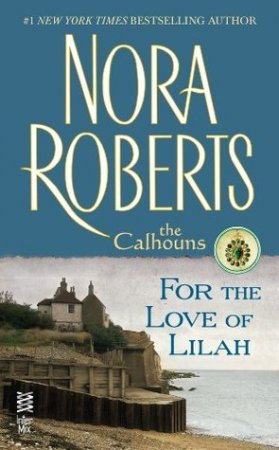 For the Love of Lilah
For the Love of Lilah Gabriel's Angel
Gabriel's Angel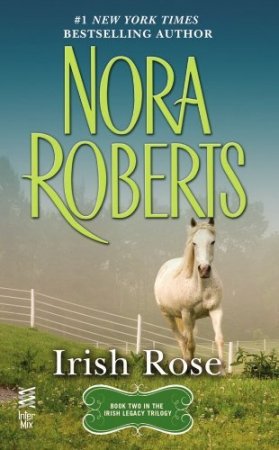 Irish Rose
Irish Rose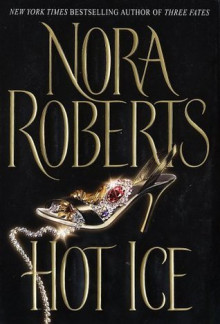 Hot Ice
Hot Ice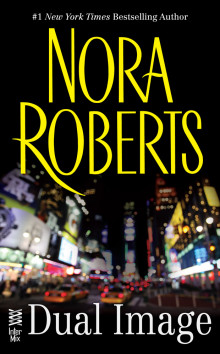 Dual Image
Dual Image Lawless
Lawless Catch My Heart
Catch My Heart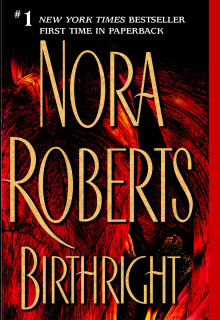 Birthright
Birthright First Impressions
First Impressions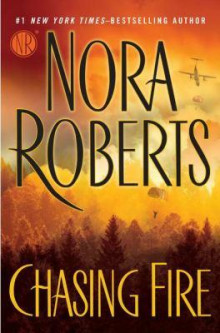 Chasing Fire
Chasing Fire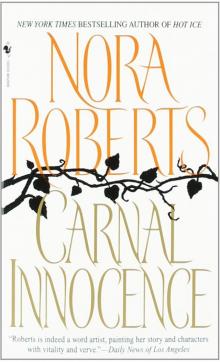 Carnal Innocence
Carnal Innocence Best Laid Plans
Best Laid Plans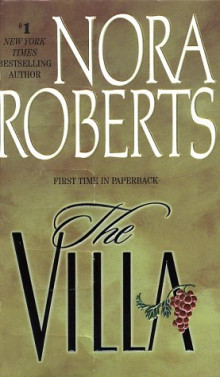 The Villa
The Villa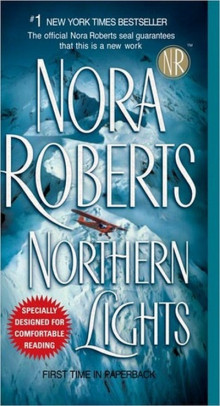 Northern Lights
Northern Lights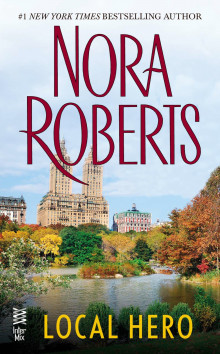 Local Hero
Local Hero Island of Flowers
Island of Flowers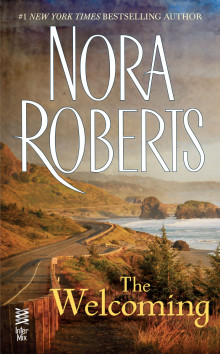 The Welcoming
The Welcoming All I Want for Christmas
All I Want for Christmas Black Rose
Black Rose Hot Rocks
Hot Rocks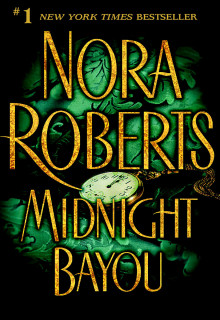 Midnight Bayou
Midnight Bayou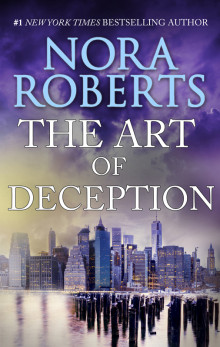 The Art of Deception
The Art of Deception From This Day
From This Day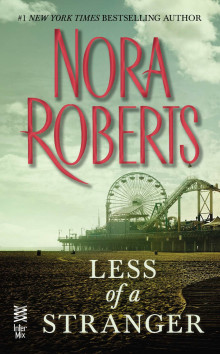 Less of a Stranger
Less of a Stranger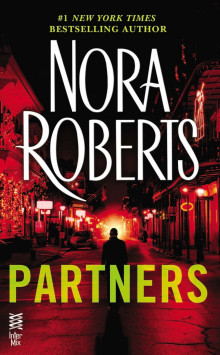 Partners
Partners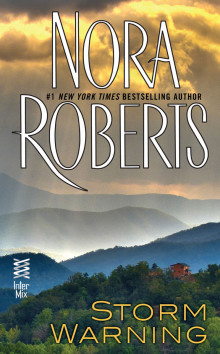 Storm Warning
Storm Warning Once More With Feeling
Once More With Feeling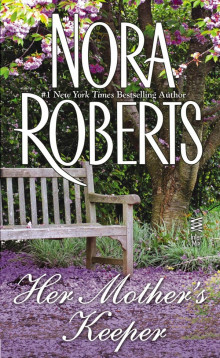 Her Mother's Keeper
Her Mother's Keeper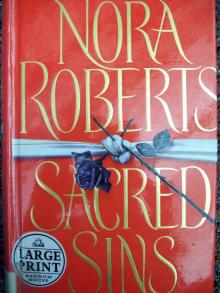 Sacred Sins
Sacred Sins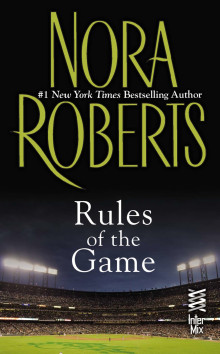 Rules of the Game
Rules of the Game Sanctuary
Sanctuary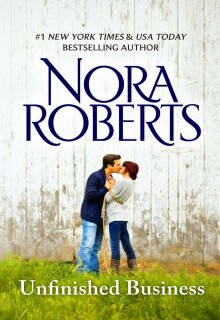 Unfinished Business
Unfinished Business Cordina's Royal Family Collection
Cordina's Royal Family Collection Dangerous Embrace
Dangerous Embrace One Summer
One Summer The Best Mistake
The Best Mistake Boundary Lines
Boundary Lines Under Currents
Under Currents The Stanislaski Series Collection, Volume 1
The Stanislaski Series Collection, Volume 1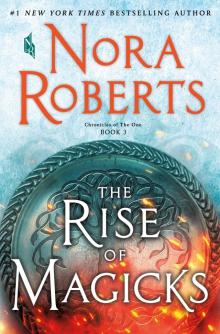 The Rise of Magicks
The Rise of Magicks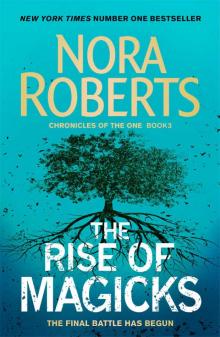 The Rise of Magicks (Chronicles of The One)
The Rise of Magicks (Chronicles of The One)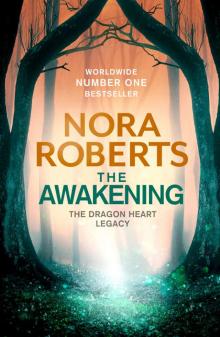 The Awakening: The Dragon Heart Legacy Book 1
The Awakening: The Dragon Heart Legacy Book 1 Dance of Dreams
Dance of Dreams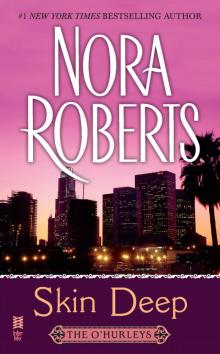 Skin Deep: The O'Hurleys
Skin Deep: The O'Hurleys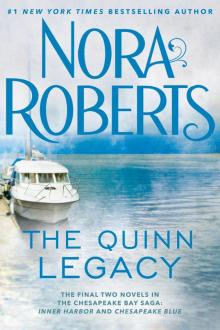 The Quinn Legacy: Inner Harbor ; Chesapeake Blue
The Quinn Legacy: Inner Harbor ; Chesapeake Blue![[Chronicles of the One 03.0] The Rise of Magicks Read online](http://i1.bookreadfree.com/11/chronicles_of_the_one_03_0_the_rise_of_magicks_preview.jpg) [Chronicles of the One 03.0] The Rise of Magicks
[Chronicles of the One 03.0] The Rise of Magicks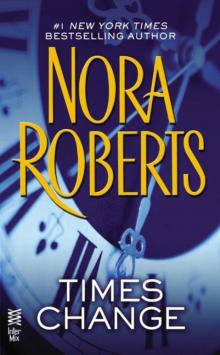 Times Change
Times Change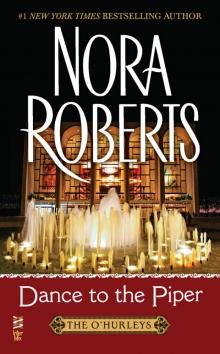 Dance to the Piper: The O'Hurleys
Dance to the Piper: The O'Hurleys Christmas In the Snow: Taming Natasha / Considering Kate
Christmas In the Snow: Taming Natasha / Considering Kate Waiting for Nick
Waiting for Nick Summer Desserts
Summer Desserts Dream 2 - Holding the Dream
Dream 2 - Holding the Dream The Novels of Nora Roberts, Volume 2
The Novels of Nora Roberts, Volume 2 In the Garden Trilogy
In the Garden Trilogy Eight Classic Nora Roberts Romantic Suspense Novels
Eight Classic Nora Roberts Romantic Suspense Novels Best Laid Plans jh-2
Best Laid Plans jh-2 From the Heart
From the Heart Holiday Wishes
Holiday Wishes Dream 1 - Daring to Dream
Dream 1 - Daring to Dream Second Nature
Second Nature Summer Pleasures
Summer Pleasures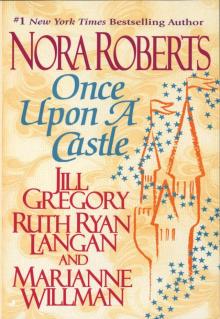 Once Upon a Castle
Once Upon a Castle Stars of Mithra Box Set: Captive StarHidden StarSecret Star
Stars of Mithra Box Set: Captive StarHidden StarSecret Star Impulse
Impulse The Irish Trilogy by Nora Roberts
The Irish Trilogy by Nora Roberts The Pride Of Jared Mackade tmb-2
The Pride Of Jared Mackade tmb-2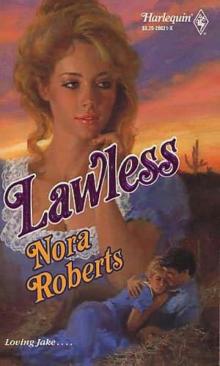 Lawless jh-3
Lawless jh-3 Taming Natasha
Taming Natasha Endless Summer
Endless Summer Bride Quartet Collection
Bride Quartet Collection Happy Ever After tbq-4
Happy Ever After tbq-4 Heart Of The Sea goa-3
Heart Of The Sea goa-3 Search for Love
Search for Love Once upon a Dream
Once upon a Dream Once Upon a Star
Once Upon a Star Dream Trilogy
Dream Trilogy Risky Business
Risky Business The Novels of Nora Roberts, Volume 3
The Novels of Nora Roberts, Volume 3 Dream 3 - Finding the Dream
Dream 3 - Finding the Dream Promises in Death id-34
Promises in Death id-34 The Novels of Nora Roberts, Volume 4
The Novels of Nora Roberts, Volume 4 The Perfect Hope ib-3
The Perfect Hope ib-3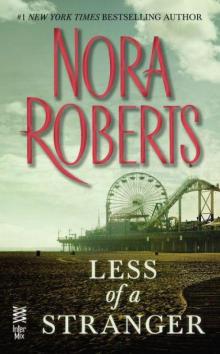 Less than a Stranger
Less than a Stranger Savour the Moment: Now the Big Day Has Finally Arrived, It's Time To...
Savour the Moment: Now the Big Day Has Finally Arrived, It's Time To... Convincing Alex
Convincing Alex Bed of Roses tbq-2
Bed of Roses tbq-2 Savour the Moment tbq-3
Savour the Moment tbq-3 Lessons Learned
Lessons Learned Key Of Valor k-3
Key Of Valor k-3 Red lily gt-3
Red lily gt-3 Savor the Moment
Savor the Moment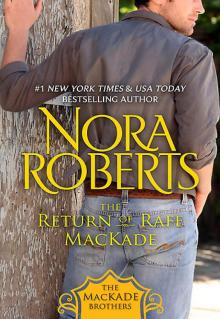 The Return Of Rafe Mackade tmb-1
The Return Of Rafe Mackade tmb-1 For The Love Of Lilah tcw-3
For The Love Of Lilah tcw-3 Black Rose gt-2
Black Rose gt-2 Novels: The Law is a Lady
Novels: The Law is a Lady Chesapeake Bay Saga 1-4
Chesapeake Bay Saga 1-4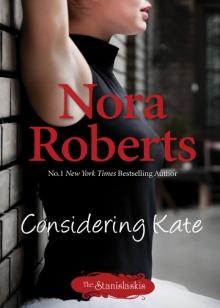 Considering Kate
Considering Kate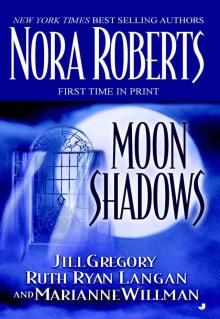 Moon Shadows
Moon Shadows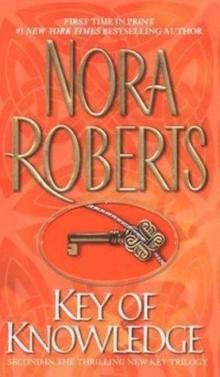 Key of Knowledge k-2
Key of Knowledge k-2 The Sign of Seven Trilogy
The Sign of Seven Trilogy Once Upon a Kiss
Once Upon a Kiss The Novels of Nora Roberts, Volume 5
The Novels of Nora Roberts, Volume 5 Suzanna's Surrender tcw-4
Suzanna's Surrender tcw-4 The Quinn Brothers
The Quinn Brothers Falling for Rachel
Falling for Rachel Brazen Virtue
Brazen Virtue Time Was
Time Was The Gallaghers of Ardmore Trilogy
The Gallaghers of Ardmore Trilogy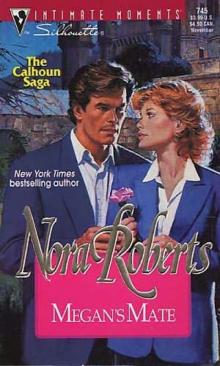 Megan's Mate tcw-5
Megan's Mate tcw-5 Loving Jack jh-1
Loving Jack jh-1 Rebellion & In From The Cold
Rebellion & In From The Cold Blue Dahlia gt-1
Blue Dahlia gt-1 The MacGregor Grooms
The MacGregor Grooms The Next Always tibt-1
The Next Always tibt-1 The Heart Of Devin Mackade tmb-3
The Heart Of Devin Mackade tmb-3 The Novels of Nora Roberts Volume 1
The Novels of Nora Roberts Volume 1 Treasures Lost, Treasures Found
Treasures Lost, Treasures Found Nora Roberts's Circle Trilogy
Nora Roberts's Circle Trilogy The Key Trilogy
The Key Trilogy The Fall Of Shane Mackade tmb-4
The Fall Of Shane Mackade tmb-4 A Will And A Way
A Will And A Way Jewels of the Sun goa-1
Jewels of the Sun goa-1 Luring a Lady
Luring a Lady